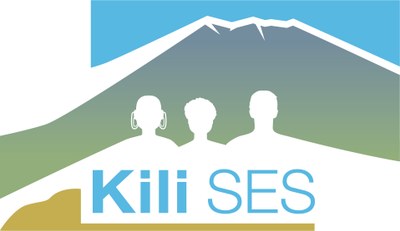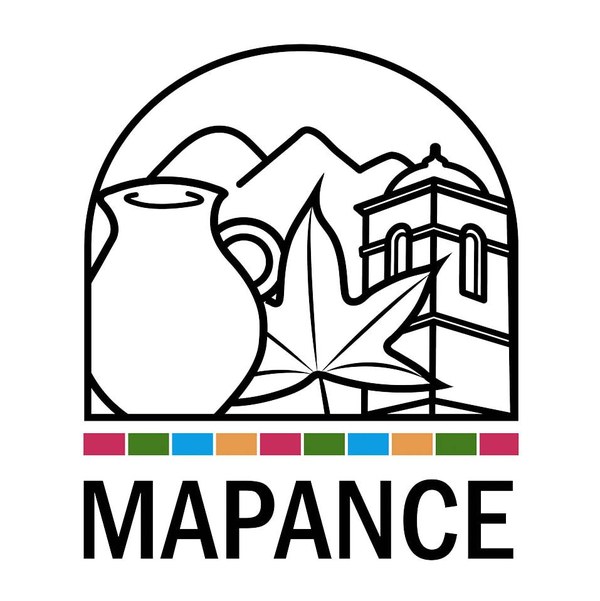Our partners
Ecuador
|
|
University of CuencaThe University of Cuenca was founded in October 1867. Through its Department of Water Resources and Environmental Sciences (iDRHICA), it leads research in water resources, environmental sanitation, and landscape management in the region. With an interdisciplinary approach and through its different education programs, it studies and monitors the relationship between natural and anthropogenic systems in and around Cajas National Park. Its scientific and technological results contribute to sustainable development, integrated management of water resources and monitoring of extreme water events. |
Prof. Dr. Rolando Célleri Alvear is the Director of the Department of Water Resources and Environmental Sciences (iDRHICA). He is also part of the academic committee of the Doctorate in Water Resources and is Academic Coordinator of the Master in Hydrology, mention in ecohydrology, taught by the Faculty of Engineering in collaboration with iDRHICA.
He studied Civil Engineering at the University of Cuenca, his master's degree in Water Resources Engineering at the Free University of Brussels, Belgium, and his PhD in Hydrology at the Catholic University of Leuven, Belgium. He has a long research career in hydrometeorology, hydrology and eco-hydrology of Andean ecosystems. He is currently working on resilience and vulnerability analysis of headwater catchments to climate change, real-time hydrological forecasting, and is a partner of the SDGNexus Network.
Juan Pesántez is a researcher at the Department of Water and Environmental Sciences (iDRHICA). His line of research is focused on the eco-hydrology of tropical Andean watersheds. He has experience in the study of environmental drivers in the biogeochemistry of these basins, as well as the study of their water quality and solute balance. He is interested in understanding the eco-hydrology of Andean watersheds through tracer-assisted hydrological modeling. Additionally, he coordinates and supervises the operation and maintenance of the eco-hydrological observatories of iDRHICA.
He is currently pursuing his PhD focusing on tracer-assisted hydrological modeling to evaluate watershed functioning in the tropical Andes.
|
|
ETAPASince 2002, the Empresa Municipal de Telecomunicaciones, Agua Potable y Saneamiento Ambiental de Cuenca ETAPA EP has been responsible for managing the Cajas National Park. Through its Environmental Management Department, ETAPA is responsible for the administration, management, regulation, and control of the park to guarantee the protection of biodiversity, ecological functions, and, above all, the protection of the quality and quantity of water resources. Communities neighbouring Cajas National Park depend on the integrity of the water sources, especially for human consumption. The rivers that are born in the park's wetlands supply water to the urban area of Cuenca and the rural parishes of Molleturo, Abdón Calderón, Arquillo, and El Tamarindo, among others. |
Honduras
Alliance Bioversity & CIATThe International Centre for Tropical Agriculture (CIAT in Spanish) has been working with smallholder farmers aiming to increase the productivity of their crops, and Bioversity International has coordinated an international plant genetic resources program aiming to increase the international gene banks. Together, under the umbrella of the CGIAR, joined forces to research and respond with science-driven solutions addressing climate changes, biodiversity loss, environmental degradation and malnutrition. In Honduras, the Alliance has been working on several topics related to agroecology and food systems transformation, between others. Additionally, the Alliance built and has been expanding the data platform called “Agua de Honduras” together with the Honduran Government through the Secretary of Energy, Natural Resources, Environment and Mines (MiAmbiente+). It was initially available in western Honduras, where extreme drought events occurred in the past, and is now available nationwide. |
|
Dr. Jürgen Baumann is an agricultural engineer with a specialization in environmental protection and rural development. He holds a PhD from Justus Liebig University Giessen in soil science on the rehabilitation of degraded volcanic soils.
He has worked for 12 years as a CIM/GIZ advisor at the National Water Commission of Mexico, implementing watershed restoration projects and establishing monitoring systems for hydrological processes in micro-watersheds. In addition, for six years he led triangular cooperation projects for GIZ on the reuse of treated wastewater in agriculture and river sanitation in Bolivia.
Since 2019 he joined the Bioversity International and CIAT Alliance team based in Honduras as a specialist in ecosystem services and water for agriculture, collaborating in landscape restoration, erosion monitoring and water management projects in Honduras, Nicaragua and El Salvador.
|
|
MAPANCEThe Community of Municipalities of Montaña de Celaque National Park (MAPANCE) is integrated by 11 municipalities that are part of the Celaque Lempira Señor de las Montañas Biosphere Reserve. It was formed with the objectiveof guaranteeing the conservation of the biosphere's natural resources and the development of the communities within. They are our right hand in the implementation of the HydroCrowd project in this area because of their expertise and strong link with the local communities. |
Tanzania
 |
Kili-SESWe are thrilled to work together with the research project “The role of nature for human well-being in the Kilimanjaro Social-Ecological System” (Kili-SES) and their partners on the southern slopes of Mt. Kilimanjaro. Kili-SES investigates how people and nature interact and depend on each other, and how these relationships are affected by changes in land use, climate and governance. The consortium of research institutions from Germany, Switzerland and Tanzania aims to provide scientific results that can support political and societal decision-making and enable a transition towards sustainable relations between people and nature.A core objective of the project is the valuation of ‘nature’s contributions to people’ (NCP) from the perspective of different stakeholder groups. NCP are all positive and negative contributions of nature to the quality of life for people. Many stakeholders indicated that the supply of clean water is a very important NCP on Mt. Kilimanjaro. But how do you quantify this if most of your water comes from an area which is difficult to access and, therefore, difficult to monitor? Together with Kili-SES partners and stakeholders, HydroCrowd will set up a hydro-climatic monitoring network to facilitate data collection under these challenging conditions. This will contribute to the efforts of Kili-SES towards sustainable pathways for adaptation to climate change in the region. |




